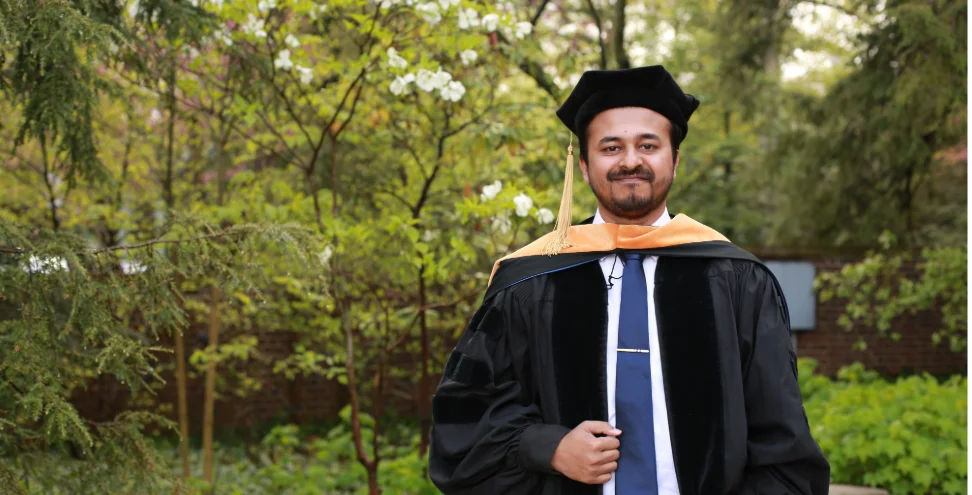Engineering in Canada - Highlights
Students aspiring to study engineering in Canada should know a few things. A quality engineering degree in Canada is always accredited by the Canadian Professional Engineering Accreditation Board. Five Canadian universities rank among the top hundred engineering institutions in the world. Twenty-eight Canadian universities have been ranked by the QS World Rankings because of their excellence and accomplishments.
Why Study Engineering Courses in Canada?
Being a progressive country, numerous Indian students are drawn toward engineering courses offered by Canadian universities. Canada's world-class universities, excellent infrastructure, and cultural diversity attract a majority of international students. Moreover, Canada's educational system is well-known for its diversity and flexibility. Engineers in Canada earn an average salary of $80,000 annually, which is pretty lucrative. An engineering degree from a Canadian institution will be recognized worldwide.
Types of Courses to Study in Canada
The Canadian universities offer international students in-depth theoretical and practical knowledge. Most Canadian universities offer bachelor's, PhD, and Master's degrees. Here are the types of engineering courses offered by Canadian universities.
Bachelor's Degree
Canadian universities offer a wide range of undergraduate engineering courses. Most of these courses are designed to provide students with a solid foundation in science, mathematics, and engineering principles. The curriculum focuses on theoretical knowledge along with hands-on learning experiences through internships and design projects.
The average course duration of a bachelor's degree ranges from four to five years. The course fees for pursuing a bachelor's degree in Canada range from CAD 25,000 to CAD 50,000 annually. Here is the list of undergraduate engineering courses taught in Canadian universities.
- BTech in Mechanical Engineering
- BTech in Computer Engineering
- BTech in Civil Engineering
- BTech in Biomedical Engineering
- BTech in Chemical Engineering
Master's Degree
Master's degrees in engineering provide students the opportunity to specialize in a specific niche. They also allow Indian students to advance their careers. Some Canadian universities offer co-op or internship options as part of their Master's in engineering.
The duration of postgraduate engineering courses ranges from one to two years. On the other hand, the course fees range from CAD 15,000 to CAD 35,000 annually. Listed are the postgraduate engineering courses taught in the Canadian universities.
- Master of Engineering in Computer Engineering
- Master of Engineering in Mechanical Engineering
- Master of Engineering in Civil Engineering
- Master of Engineering in Electrical Engineering
- Master of Engineering in Construction
- Master of Engineering in Industrial Engineering
List of Universities Offering Engineering Courses
Here is the list of universities offering engineering courses in Canada.
- University of Toronto – Ranks 18th globally
- University of British Columbia – Ranks 34th in the world
- McGill University – Ranks 40th globally
- University of Montreal – Ranks 73rd globally
- McMaster University – Ranks 69th in the world
Admission Process to Study Engineering in Canada
Applying for engineering courses in Canada can be completed online. Indian engineering aspirants must decide on the course before applying. Once the universities are shortlisted, students should visit each website and carefully review the entry requirements. Aspirants must be aware of the application fees charged by each Canadian university. Once selected, the universities will send a letter of acceptance to the students.
Eligibility Criteria
Undergraduate engineering aspirants should score a minimum of 70% in 12th grade, and they must secure at least 55% in Mathematics. Their IELTS score should be 6.5. The entry requirements for Indian students aspiring to study postgraduate engineering courses differ slightly.
Students must complete 16 years of schooling to be admitted to PG engineering courses. Aspirants should have a GPA of at least 3.5 in their UG degree. Prior work experience of students is always an added advantage. Aspirants must obtain 7 in IELTS and 100 in TOEFL for admission to PG engineering degrees.
Documents Required
Here is the documents required for Indian students to apply to engineering courses in Canada.
- Original letter of acceptance from the Canadian university
- Proof of English language proficiency
- Statement of Purpose
- Letters of Recommendation
- Academic Transcripts
- Passport details
- Health information
Proficiency Test
Students should demonstrate their proficiency in the English language for undergraduate and postgraduate engineering courses. Several tests are accepted in Canada, including TOEFL, IELTS, PTE, etc. The required scores vary based on the university. GRE and GMAT scores are mandatory for students who want to pursue a Master's course in engineering in Canada.
Visa Process
The overall visa process for studying engineering in Canada is pretty simple. Students should apply for a Canadian student visa only after receiving the university's acceptance letter. Aspirants must provide proof of financial stability to support their educational degree in Canada. They should also submit medical reports to confirm that they're fit and healthy.
Cost of Engineering Courses in Canada
- Tuition Fees
An undergraduate engineering course's average annual tuition fee ranges from CAD 10,000 to CAD 40,000. On the other hand, the yearly tuition fee for pursuing a postgraduate degree in engineering from a Canadian university ranges from CAD 12,000 to CAD 55,000.
- Cost of Living
Here are the annual expenses for Indian students aspiring to study engineering.
- Accommodation – CAD 8,000
- Food – CAD 6,000
- Miscellaneous – CAD 4,000
- Stationary – CAD 1,000
Scholarships for Engineering Courses in Canada
Indian students can apply for the following types of scholarships to study engineering.
- Canada Graduate Scholarships - Offered by the Canadian government for students in Master's research-based engineering programs.
- McGill Entrance Scholarships - Sponsored by McGill University offering renewable scholarships.
Career/Job Opportunities
The following are the typical job opportunities that Indian students with engineering degrees can pursue in Canada.
- Biomedical engineer
- Mechanical engineer
- Civil engineer
- Mining engineer
- Aerospace engineer
- Chemical engineer
FAQs About Engineering Courses in Canada
1. What are the averageB Tech fees in Canada for international students?
The B Tech fees in Canada for international students typically range from CAD 25,000 to CAD 50,000 annually. This variation depends on the specific university and program. Students should research the Canada engineering colleges fees to budget accordingly.
2. What are the best engineering colleges in Canada for Indian students?
Some of the best engineering colleges in Canada for Indian students include the University of Toronto, University of British Columbia, and McGill University. These institutions offer robust engineering programs that are recognized worldwide, making them ideal choices for pursuing a BTech in Canada.
3. Are there any scholarships available for BTech in Canada for Indian students?
Yes, numerous scholarships are available for BTech in Canada for Indian students. These include government-funded scholarships and university-specific awards, which can help offset Canada engineering college fees and make studying more affordable.
4. What is the duration and fee structure for M Tech in Canada for Indian students?
The duration of an M Tech in Canada for Indian students is generally between one to two years. The fees can range from CAD 15,000 to CAD 35,000 annually, depending on the university and program. It's advisable to check individual university websites for detailed fee structures and financial aid options.
5. What are the career prospects after completing a BTech from Canada?
Graduates with a BTech from Canada enjoy excellent career prospects, with an average starting salary of CAD 60,000 to CAD 80,000 per year. The skills acquired during their studies are highly valued in various sectors, providing numerous job opportunities for international students.



.png)








